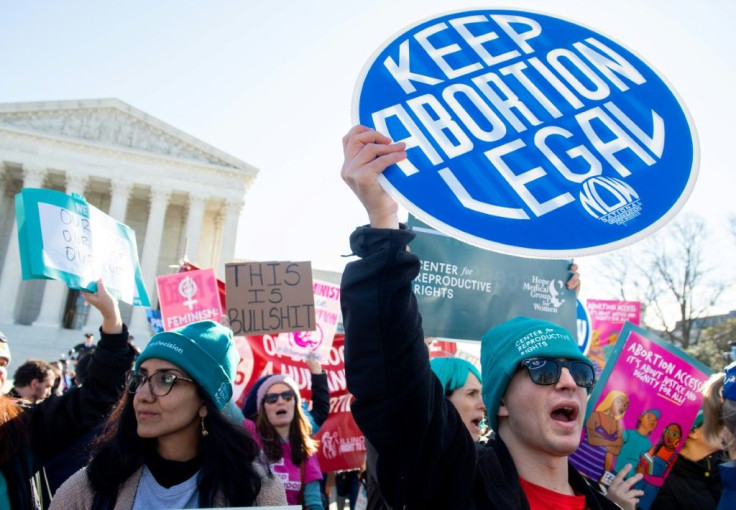US Appeals Court Says Texas Cannot Suspend Abortions During Pandemic

Abortion rights advocates on Tuesday withdrew a petition to the US Supreme Court to force Texas to reinstate the right to abortion during the novel coronavirus pandemic, after an appeals court ruled in their favor.
A New Orleans federal appeals court ruled Monday evening that authorities of conservative-leaning Texas could not include medical abortion on the list of "non-emergency" medical procedures prohibited while the COVID-19 outbreak continues.
Applying this classification to "medical abortions despite the executive order's apparent inapplicability is a strong indication that the enforcement is pretextual and does not bear a 'real or substantial relation' to the public health crisis," said Judge James Dennis.
In March, the state's governor, Greg Abbott, had decreed that elective medical procedures should be delayed to ensure readiness to treat virus patients -- and to conserve protective gear for frontline workers.
Abortion rights advocates sued for an emergency injunction. A federal court twice ruled in their favor, but its decisions were overturned on appeal.
Over the weekend, Texas abortion clinics asked the Supreme Court to reinstate the lower court's decision.
But following Dennis's ruling, abortion rights advocates withdrew their petition to the nation's highest court, even though surgical abortions are still partially banned in Texas.
Other courts in Ohio, Alabama and Oklahoma have struck down similar measures.
While abortion is legal throughout the United States, there are wide regional disparities in access to the procedure.
Coastal states have many clinics, while the more religious central and southern states have adopted many restrictive regulations that have forced many facilities to close.
© Copyright AFP {{Year}}. All rights reserved.





















